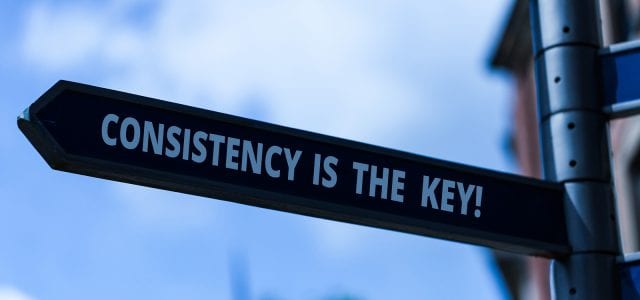Big businesses are successful due to a variety of factors. It’s often believed that the strategies for this kind of success are only useful on a large scale. Therefore, they are surprised to hear that these methods can also transfer to small businesses and likewise lead to success! Following these best practices is a great way to build a solid foundation for continued growth.
1. Set a Process and Stick to It
The benefit of small businesses is that they can adapt quickly due to the size of their staff. Just because it can shift focuses easily doesn’t mean it should be a constantly changing experience. Some of the most successful businesses don’t totally change over to new business practices at the drop of a hat however. Keeping methods consistent ensures that your product remains stable and can be replicated easily. It also means your employees can settle into their roles and focus on doing the best job possible without trying to learn another role or process.
2. Be Attentive to Employees
Having regular contact with employees at every level of a business in important for businesses of every size. The most successful businesses with the happiest employees ensure that the people leading the company are aware of the work of those beneath them. Checking in with your staff in the form of employee reviews helps to solidify that feeling of working together and establishing a group cohesion. Happy employees has also been found to improve work life overall, so it’s definitely worth establishing!
3. Employ Clear Expectations
Stay clear and true to your vision with your business. Waffling around on where your expectations are for your staff can result in confusion in the ranks, and an inconsistent return on what you ask for. While it’s important to adjust according to current and changing situations, it’s equally vital to make sure your staff knows that when you set a deadline or process, it should be followed. The other part of this point is the clarity. Everyone in the process should be able to see where the project came from and where it’s going. Isolating employees from the bigger picture of a business can make them feel like they’re not as important in the grand scheme of things.
4. Listen to Customers
The customer is obviously a vital component to a successful business, so it makes total sense that they should play a big part in directing future changes that might need to happen. Small businesses should be even more focused on customer satisfaction than the larger players because each interaction can establish what happens next for that customer and their relationship with the business as a whole. As a small business, it’s much easier to have a direct connection with your customer-base than a company of hundreds of staff.
5. Embrace the Flexibility
Even as larger businesses would have a hard time adjusting to meet the expectations of customers and employees, while maintaining a solid vision of themselves, small businesses and startups have unmatched flexibility. Fewer employees, fewer customers, and less business bulk make it easy for small businesses to meet the changing needs of a growing company. If something is definitely not working for your company, why not change course slightly to better meet those goals?
In the end, the key takeaway is that best business practices don’t change from small businesses to bigger corporations. When trying to plot your path to success, don’t hesitate to look at how the giants of industry got where they are now. Take notes start moving forward!





